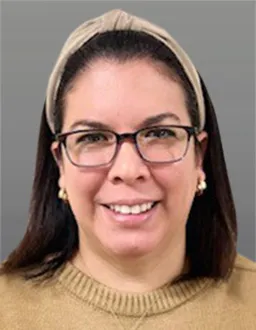Breadcrumb
- Home
- Conditions & Treatments
- Germ Cell Brain Tumors
What are germ cell brain tumors?
Germ cell brain tumors develop from germ cells — the cells that later become sperm in the testicles or eggs in the ovaries during the fetal period. These cells may get trapped in the brain. Most germ cell tumors are found in the ovaries (ovarian tumors) or testes (testicular tumors), but when they are located in the brain they are called intracranial germ cell tumors, or germ cell tumors of the brain. Germ cell tumors that develop in the brain or spinal cord also may be called CNS (central nervous system) germ cell tumors.
There are two main types of germ cell tumors of the brain: Germinomas and non-germinomatous tumors. If they include aspects of both, they are called mixed germ cell tumors. These tumors are rare, accounting for approximately 4 percent of pediatric brain tumors. Around half occur in children between the ages of 10 and 15. Germ cell tumors of the brain most commonly involve or are found near the pituitary and pineal glands in the brain.
Symptoms & Causes
What are the symptoms of germ cell brain tumors?
Brain tumors can cause a variety of symptoms in children based primarily on the location of the tumor. Keep in mind that the symptoms of a brain tumor may resemble other more common conditions or medical problems. It is important to consult your child's physician for persistent symptoms.
Symptoms of germ cell brain tumors typically depend on where they have developed in the brain. For tumors in the pineal gland region, children can have the following symptoms:
- Hydrocephalus (swelling of the brain)
- Headache
- Vomiting
- Fatigue
- Behavioral or cognitive changes
- Uncoordinated body movement (ataxia)
- Vision changes, including double vision and difficulty looking up
For tumors in the suprasellar or pituitary gland region, common symptoms include:
- Diabetes insipidus
- Delayed puberty
- Early (precocious) puberty
- Stunted growth
- Vision changes including loss of peripheral vision or decrease in vision
What causes germ cell brain tumors?
The cause of germ cell brain tumors is not well known. Usually, germ cells migrate to the gonads during fetal development and become an egg in the female ovaries or sperm in the male testes. However, when these germ cells don’t move to the right area, they become trapped in the brain and multiply in areas where they shouldn’t. It’s important to understand that these and other brain tumors most often occur with no known cause.
Diagnosis & Treatments
How are germ cell brain tumors diagnosed?
How are germ cell brain tumors diagnosed?
The first step in treating your child is forming an accurate and complete diagnosis. Germ cell brain tumors are typically diagnosed using a combination of imaging and biopsy. As with other brain tumors, diagnostic procedures for germ cell tumors of the brain can determine the exact type of tumor and whether it has spread.
Your child’s physician may order a number of different tests including:
- Physical exam and complete medical history
- Magnetic resonance imaging (MRI)
- Computerized tomography scan (CT or CAT scan)
- Blood tests to check for tumor markers
- Lumbar puncture (spinal tap)
There may be other diagnostic tests that your doctor will discuss with you depending on your child's individual situation.
How are germ cell brain tumors treated?
Your child's physician will determine a specific course of treatment based on several factors, including your child's age, overall health and medical history, the type, location, and size of the tumor and the extent of the disease.
Treatments for germ cell brain tumors include:
- Neurosurgery
- Endoscopic third ventriculostomy or ventriculo-peritoneal shunt
- Radiation therapy
- Chemotherapy
What is the long-term outlook for children with germ cell brain tumors?
The prognosis for children with germ cell brain tumors depends on the type of tumor. In general, germinomas are cured in greater than 90 percent of cases with combined treatment. Non-germinomatous germ cell tumors have a 65 percent to 85 percent cure rate, depending on their spread at diagnosis. Mixed germ cell brain tumors are generally more difficult to treat.
Children treated for a germ cell tumor in the brain should visit a survivorship clinic every year to manage disease complications, screen for recurrence and manage late treatment side effects. A typical follow-up visit is likely to include a physical exam, laboratory testing, and imaging scans.
At the Stop and Shop Family Pediatric Neuro-Oncology Outcomes Clinic children meet with their neurosurgeon, radiation oncologist, pediatric neuro-oncologist, and neurologists at the same follow-up visit. Our multidisciplinary approach and depth of expertise also give your child on-site access to endocrinologists, neuro-psychologists, and alternative/complementary therapy specialists. School liaison and psychosocial personnel from the pediatric brain tumor team are also available.
How we care for germ cell brain tumors
Children with germ cell brain tumors are treated at Dana-Farber/Boston Children's Cancer and Blood Disorders Center through the Brain Tumor Center, one of the largest and most experienced pediatric brain tumor treatment programs in the world. Our brain tumor specialists have extensive expertise in treating all types of brain tumors, including germ cell brain tumors. Our patients receive care from neuro-oncologists, neurosurgeons, neurologists, and pediatric subspecialists.
Research & Innovation
Our areas of research for germ cell brain tumors
Clinical trials, or research studies evaluating new treatment approaches, are a major offering at Dana-Farber/Boston Children’s. For many children with brain tumors or other rare or hard-to-treat conditions, clinical trials provide new options.
In addition to launching our own brain tumor clinical trials, we also offer trials available through collaborative groups such as the Children's Oncology Group (COG) and the Pacific Neuro-oncology Consortium (PNOC). We are also the New England Phase I Center of the Children's Oncology Group. If your child has progressive or recurrent tumor, they may be eligible for a number of experimental therapies available through these groups, or from one of our independent clinical investigators.
Participation in any clinical trial is completely voluntary. We will take care to fully explain all elements of the treatment plan prior to the start of the trial, and you may remove your child from the medical study at any time.





